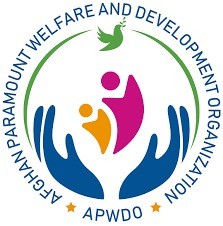Women’s Empowerment
Women’s Empowerment at APWDO
At APWDO, we believe that empowering women is not only a moral imperative—it is essential for building sustainable peace and development in Afghanistan. Our approach goes beyond training; we invest in economic independence, social inclusion, and leadership capacity. Since our inception, APWDO has supported thousands of women—including IDPs, returnees, and those with disabilities—through a combination of vocational training, psychosocial support, legal awareness, and governance engagement.
Despite the severe restrictions on women’s employment in Afghanistan, APWDO has successfully recruited and employed over 50 female staff in Kunar province under the UNICEF project, working directly with women and children. We have also created employment opportunities for 15 women in Balkh province through our community-based education program. Additionally, APWDO is proud to offer remote and online job opportunities to female professionals in management, coordination, and reporting roles—ensuring their inclusion in the workforce regardless of movement restrictions.

Women participating in an APWDO vocational training session

Women participating in an APWDO vocational training session
Economic Empowerment
Through targeted livelihood programs, APWDO has equipped over 310 women—many of them returnees from Iran and Pakistan—with practical income-generating skills in cake baking, livestock care, and business management. These trainings have enabled women to overcome socio-economic barriers, start their own bakeries and dairy shops, and earn between AFN 15,000–25,000 ($250–$350) per month. MEL data from 2024 showed that 12 out of 40 women in Balkh and Jawzjan and 9 out of 40 women in Samangan and Baghlan successfully launched their own businesses, representing a strong startup success rate
Psychosocial Support and Rights Awareness
Our Peace Nurseries have provided safe spaces for over 200 women, including widows, IDPs, returnees, and those with disabilities. These centers offer structured psychosocial support, legal awareness on inheritance and family rights, and dialogue on the importance of women’s active role in society. MEL findings show that over 65% of participants reported improved mental health and reduced exposure to domestic violence. Participants also generated daily incomes of AFN 150–200 through small-scale agriculture and vegetable sales.
Peacebuilding and Leadership
Women’s meaningful participation in peace processes and governance is central to our work. With support from donors such as FCDO and USAID, APWDO has trained women in leadership, mediation, and dialogue facilitation. Women now lead several Peace Committees established by APWDO in four provinces. These committees continue to operate on a voluntary basis even after project closure, sustaining long-term impact. Media campaigns and local storytelling were also integrated to amplify women’s roles in peacebuilding.
Notably, APWDO facilitated the resolution of a four-year conflict between two villages in Jawzjan through a community-led water canal project, benefiting 250 families and strengthening cooperation.

Women participating in an APWDO vocational training session

Women actively participated in a community discussion facilitated by APWDO, voicing their perspectives and contributing to local peacebuilding efforts.
Gender-Based Violence (GBV) Prevention
APWDO implements multi-sectoral GBV prevention programs that include awareness campaigns, survivor support, and training for community responders. By engaging women, men, community leaders, and religious figures, we foster safer environments and challenge harmful gender norms. These interventions are rooted in local ownership and designed to evolve beyond the project lifecycle.
Community Engagement and Sustainability
Our approach prioritizes community-based ownership. We engage men, boys, elders, and Shuras in gender dialogues to promote shared responsibility. Women-led business groups and peace committees continue to function after project closure, offering mentorship and support to new participants. This model ensures that empowerment is not a one-time event, but a sustained, evolving transformation.
Results from Ongoing Projects
In Kunar province, APWDO successfully provided cash assistance to 15,500 Pregnant and Lactating Women (PLW) under a UNICEF-funded nutrition program.
Our Social and Behaviour Change (SBC) campaign reached 199,500 individuals, primarily women and children, with messages on nutrition, hygiene, and early childhood care.
Across APWDO programs, over 65% of women participants reported improvements in mental well-being, financial status, and community recognition

